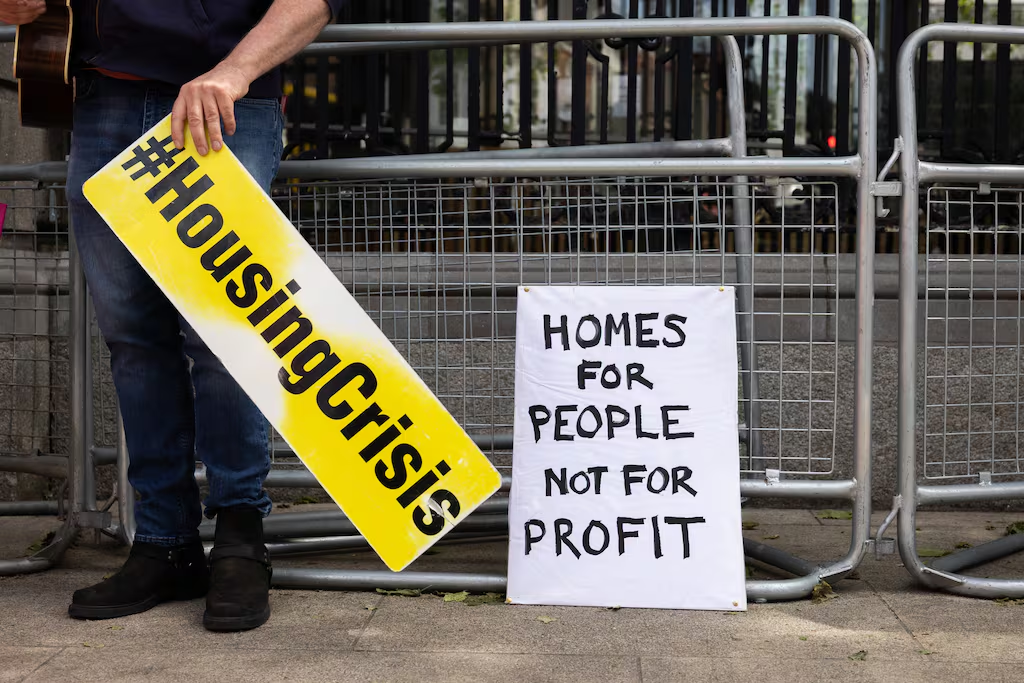In an era of global economic uncertainty, the actions and policies of world leaders can ripple across continents, impacting economies far and wide. Former U.S. President Donald Trump's tenure is often cited as a period of significant unpredictability, particularly in the economic realm. For property investors in New Zealand, understanding these international dynamics is crucial, as they can indirectly influence local markets and investment strategies.
Understanding the Global Context
During Trump's presidency, policies such as the trade war with China and regulatory rollbacks introduced volatility in global markets. This uncertainty was compounded by shifting foreign policies and fluctuating economic indicators in the U.S., which often set the tone for global economic health. For New Zealand, a nation deeply connected to international trade, these uncertainties presented both challenges and opportunities.
Impact on New Zealand's Economy
New Zealand's economy, while resilient, is not immune to global shifts. According to Stats NZ, the country saw a 1.5% GDP contraction in 2020, attributed in part to international economic disruptions. With significant exports to the U.S., any fluctuations in the American economy could affect New Zealand's trade balance and economic stability. The Reserve Bank of New Zealand has warned that such global uncertainties could increase volatility in exchange rates, impacting export revenues and foreign investment inflows.
Case Study: Zespri's Strategic Adaptation
Problem: Zespri, New Zealand’s leading kiwifruit exporter, faced challenges due to shifting U.S. tariffs and trade policies during Trump's presidency.
Action: Zespri diversified its markets, increasing exports to Europe and Asia to mitigate risks. The company also invested in marketing to enhance brand recognition globally.
Result: This strategy led to a 20% increase in revenue from non-U.S. markets within two years, ensuring stability despite U.S. market fluctuations.
Takeaway: Diversification and strategic market expansion can shield New Zealand businesses from international volatility, a crucial lesson for property investors considering global economic impacts.
Pros & Cons of Investment Strategies Amidst Uncertainty
Pros:
- Opportunistic Buying: Market volatility can create buying opportunities for savvy investors, potentially leading to higher returns.
- Diversification Benefits: Investing in diverse asset classes can reduce risk exposure from any single market's fluctuations.
- Currency Advantages: Fluctuations in currency values can benefit investors with international portfolios.
Cons:
- Increased Risk: Volatile markets can lead to unpredictable returns, posing risks for less experienced investors.
- Regulatory Changes: Sudden shifts in international trade policies can affect property values and investment yields.
- Economic Uncertainty: Global economic instability can dampen consumer confidence and reduce demand in property markets.
Debunking Common Myths
Myth: "International market fluctuations have minimal impact on NZ property investments."
Reality: Global economic changes can significantly impact New Zealand's property market through trade links and currency fluctuations, as highlighted by the Reserve Bank of New Zealand.
Myth: "Property investments are always safe during global economic downturns."
Reality: While property can be a stable investment, global downturns can impact property values and rental yields, requiring strategic risk management.
Future Trends & Predictions
Looking ahead, New Zealand's property market is poised to adapt to ongoing global uncertainties. A report by MBIE suggests that technological advancements, such as AI and big data, will play a crucial role in future investment strategies. Additionally, as New Zealand strengthens its trade ties with Asia, property investors should anticipate shifts in market demand and investment opportunities.
Conclusion
For New Zealand property investors, understanding the global economic landscape is not just beneficial but essential. By recognizing the potential impacts of international uncertainties, such as those seen during Trump's presidency, investors can better navigate the complexities of the market. Strategic diversification, informed decision-making, and a keen eye on global trends will be vital to securing strong returns and mitigating risks. What strategies will you implement to protect your investments against global uncertainties? Share your thoughts and insights below!
People Also Ask
- How does U.S. economic uncertainty impact New Zealand's property market? U.S. economic shifts can influence global trade dynamics and currency values, affecting NZ's export revenues and investment flows.
- What are effective strategies for property investment during economic uncertainty? Diversification across asset classes and geographical regions, along with leveraging technological tools for market analysis, are recommended strategies.
Related Search Queries
- Impact of U.S. economy on New Zealand property market
- New Zealand property investment strategies
- Global economic trends affecting NZ real estate
- Trump's policies and global market volatility
- Future of New Zealand's real estate market

































josephine16589
8 months ago